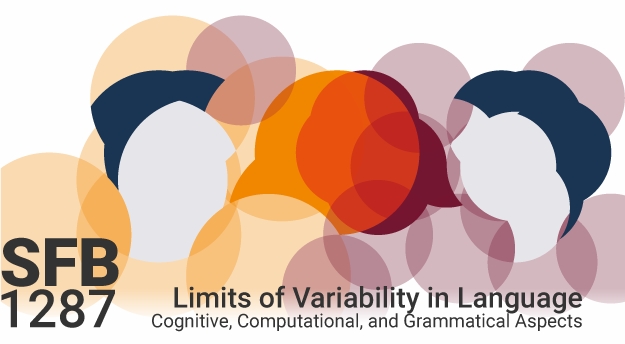Prof. Dr. Gisbert Fanselow (1959-2022)
Gisbert Fanselow was a founder of modern generative syntax research in Germany. He studied in Regensburg and Konstanz from 1977 to 1983 under Peter Staudacher, Arnim von Stechow, and Urs Egli, among others. His first book publication (1981; "On the Syntax and Semantics of Nominal Composition"), published by Niemeyer, was the result of a student seminar paper.
After completing his master's degree in theoretical linguistics and German and English linguistics in Konstanz, Fanselow worked at the University of Passau from 1983 to 1993, where he also received his doctorate (1985) and habilitated (1989). During this time, together with his mentor and doctoral supervisor Sascha Felix, he wrote one of the most widely read German-language introductions to generative linguistics, "Sprachtheorie" (Vol. 1 & 2, UTB, 1987), which had a lasting influence on generations of linguists.
Since 1993, Gisbert Fanselow held the C4 professorship for Grammar Theory with a focus on syntax at the newly established Department of Linguistics at the University of Potsdam, which he established together with Gisa Rauh and shaped with its generative, cognitive science orientation. In collaboration with Reinhold Kliegl from the Department of Psychology, he succeeded in establishing Potsdam linguistics as part of modern cognitive science. Fanselow's spokespersonship in the Innovation College "Formal Models of Cognitive Complexity" (1994-1999) and in the DFG research group "Conflicting Rules" (1999-2003) also made a significant contribution to this. Fanselow also played a major role in securing funding for the SFB 632 "Information Structure," a collaboration between Humboldt University of Berlin and the University of Potsdam. He was also significantly involved in the planning and application for the Collaborative Research Center (CRC) 1287 "The Limits of Variability in Language: Cognitive, Computational, and Grammatical Aspects" at the University of Potsdam.
Gisbert Fanselow had a broad academic background and, in his long and successful career, worked on a variety of empirical phenomena, theoretical problems, and methodological issues in a wide variety of languages, including parameterization, configurationality, word order, split NPs, wh-questions, information structure, scope, the methodology of acceptability studies, the limits of grammatical systems, etc. He was one of the most knowledgeable experts on Germanic syntax and a recognized expert on questions of VO vs. OV parameterization in natural languages. His final research project in CRC 1287, "Syntactic Implication of the Position of Head and Argument," once again addresses this problem from a broad typological perspective using language samples from all major language families in the world.
Gisbert Fanselow was a role model for generations of syntacticians through his enthusiasm, curiosity, modesty, and deep interest in the well-being of his students. He was always approachable and always took as much time as his students needed. He was involved in the training of numerous renowned linguists: Artemis Alexiadou, Julia Bacskai-Atkari, Joanna Blaszczak, Ina Bornkessel-Schlesewsky, Damir Cavar, Susann Fischer, André Meinunger, Florian Schäfer, Matthias Schlesewsky, Luis Vicente, Ralf Vogel, Marta Wierzba, and many others. Fanselow also exerted a strong influence on the development of linguistics in Germany in his capacity as a reviewer at the German Research Foundation (DFG). He has published in all major journals; his most recent article, published in Glossa (Fanselow et al., 2022), deals with a new experimental method for investigating inverse quantifier scope in German.
In addition to linguistics, he was also deeply interested in environmental, climate, and species conservation. He was an important voice in the University of Potsdam's Environmental Commission, served on the advisory board of "Scientists for Future," and founded "climatewednesday.org," an initiative to reduce air travel in the academic community, which was very dear to his heart.
His sudden illness took Gisbert completely unexpectedly from the middle of an active research career. Gisbert still had many plans and was in the process of preparing another research project on wh-questions from a typological perspective.
His death leaves a huge, unfillable gap in German linguistics and the Department of Linguistics at the University of Potsdam. His colleagues in the department will miss Gisbert for his comprehensive linguistic expertise, but above all for his friendliness, his curiosity, his collegiality, his helpfulness, and his willingness to always put personal vanity behind the bigger picture.
We mourn Gisbert Fanselow as a friend and colleague and our thoughts are with his family.

